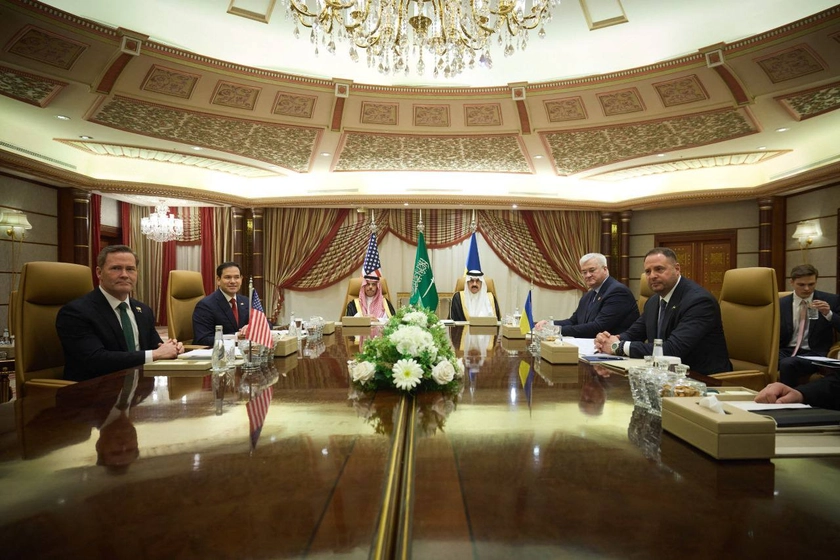Representatives of around 40 states have discussed peace scenarios for Ukraine in Jeddah, Saudi Arabia. In addition to Ukraine, several Western states and China, key countries of the Global South that have not yet imposed sanctions against Russia also took part. Moscow was not invited. Europe's press sees potential.
JOIN US ON TELEGRAM
Follow our coverage of the war on the @Kyivpost_official.
Neutral states on the right side
La Stampa sees the summit as a success in several respects:
“Ukraine emerges strengthened, Russia is isolated, and the role of Saudi Arabia and the entire front of large 'neutral' countries has been enhanced. Their participation is the real novelty of the meeting that saw Western and emerging nations' delegations plus Ukraine at the table, making the absence of the uninvited Russia even more conspicuous. The most important follow-up may simply be another summit - that's how diplomacy works. But it would be a remarkable step forward if, as seems likely, it receives the expected approval of China, which only accepted the invitation to Jeddah on the eve of the meeting.”
Russia is losing its allies
Radio Kommersant FM sees Moscow drifting towards the sidelines globally:
“The Kremlin keeps claiming that it is not against a diplomatic solution, but that Kyiv has rejected it. But as it turns out, such negotiations can be conducted without us: representatives of more than three dozen countries have discussed the conditions for peace, including respect for Ukraine's internationally recognised borders and reparations to be paid by Russia. ... If it boils down to a forum attended by the leaders of the West and the Global South, Moscow will have to make a serious effort to break up this broad coalition. And that won't be as easy as many Moscow politicians believe.”
Germany Plans to Boost Ukraine Aid by €3B
China's participation not necessarily a good thing
According to Strana, China's participation could strengthen pro-Russian attitudes:
“Beijing's presence in Jeddah could counteract the consolidation of Zelensky's peace formula. Of all the major countries of the 'Global South', it is China that most actively supports Moscow and most loudly accuses the West of 'aggressive policies'. That means it is possible that China is promoting 'pro-Russian' attitudes (calls for a compromise with Russia) among the non-Western countries gathered in Saudi Arabia and the idea of an early end to the war through a ceasefire along the frontline.”
The winner is Saudi Arabia
The conference has been a PR bonanza for Riyadh, comments tagesschau.de:
“Cartoons on state television already show the Saudi flag flying loftily between the Ukrainian and Russian flags. There is no question that the Saudis have the potential to mediate: as an ally of the US with good contacts to Europe and a close connection to Russia. .... And now, apparently, the new peace plan presented by the Saudis - another push by Riyadh to put itself on the map. ... For the actors in the Ukraine war, the Gulf state could also be an interesting mediator in the future. The winners of this weekend's conference: Ukraine only a little, Russia hardly - but certainly the host country: Saudi Arabia.”
You can also highlight the text and press Ctrl + Enter











